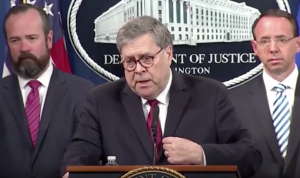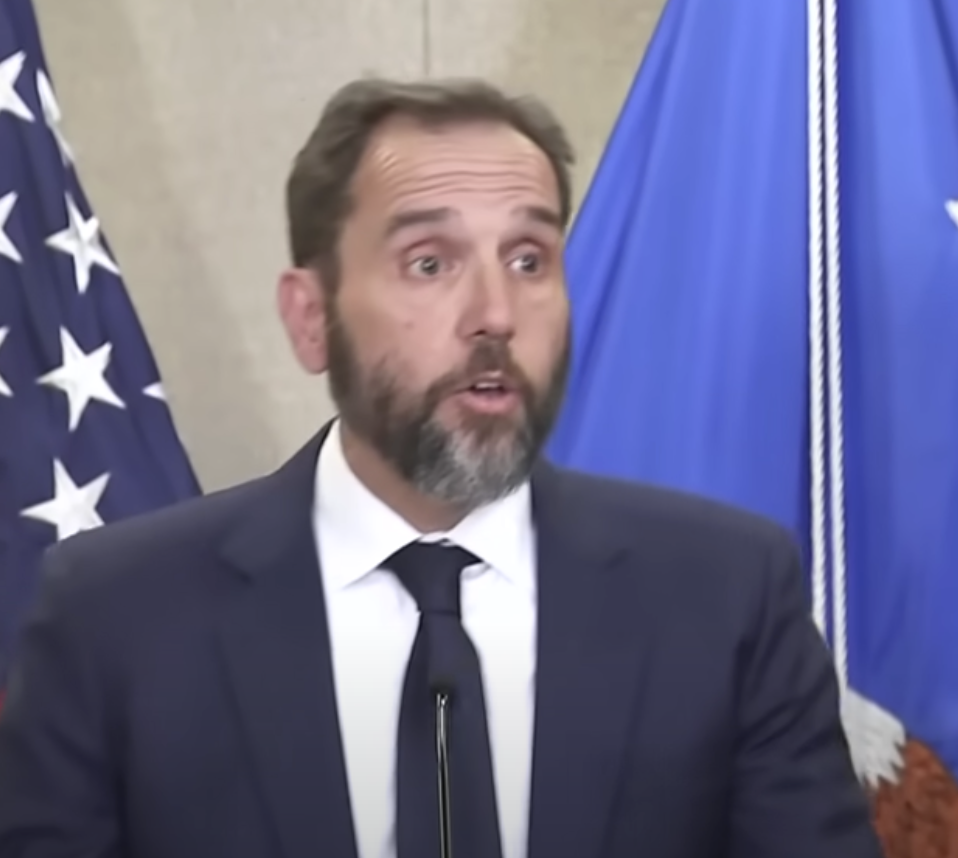
By Steve Neavling
ticklethewire.com
Attorney General William Barr on Thursday released a redacted version of Robert Mueller’s 448-page report on Russian interfere during the presidential election.
Here are five highlights:
1. Mueller’s nearly two-year investigation was unable to clear Trump of obstruction of justice.
“The evidence we obtained about the President’s actions and intent presents difficult issues that would need to be resolved if we were making a traditional prosecutorial judgment,” the report stated. “At the same time, if we had confidence after a thorough investigation of the facts that the President clearly did not commit obstruction of justice, we would so state. Based on the facts and the applicable legal standards, we are unable to reach that judgment.”
2. Mueller’s team decided not to prosecute Donald Trump Jr. and other members of his campaign team for meeting with a Kremlin-linked source in July 2016.
“Taking into account the high burden to establish a culpable mental state in a campaign-finance prosecution and the difficulty in establishing the required valuation, the Office decided not to pursue criminal campaign-finance charges against Trump Jr. or other campaign officials for the events culminating in the June 9 meeting.” the report states, “The Office ultimately concluded that, even if the principal legal questions were resolved favorably to the government, a prosecution would encounter difficulties proving that Campaign officials or individuals connected to the Campaign willfully violated the law.”
3. When Mueller was appointed on May 17, 2017, Trump declared the appointment was the “end of my presidency.”
“According to notes written by Hunt, when Sessions told the President that a Special Counsel has been appointed, the President slumped back in his chair and said, ‘Oh my God. This is terrible. This is the end of my Presidency. I’m fucked,’” the report states.
4. Mueller explained why he decided not to interview Trump.
“Ultimately, while we believed that we had the authority and legal justification to issue a grand jury subpoena to obtain the President’s testimony, we chose not to do so,” the report states. “We made that decision in view of the substantial delay that such an investigative step would likely produce at a late stage in our investigation. We also assessed that based on the significant body of evidence we had already obtained of the President’s actions and his public and private statements describing or explaining those actions, we had sufficient evidence to understand relevant events and to make certain assessments without the President’s testimony.”
5. Mueller’s evidence of “numerous” connections between Trump’s campaign and Russians “was not sufficient to support criminal charges.”
“While the investigation identified numerous links between individuals with ties to the Russian government and individuals associated with the Trump Campaign, the evidence was not sufficient to support criminal charges,” the report states. “Among other things, the evidence was not sufficient to charge any Campaign official as an unregistered agent of the Russian government or other Russian principal. And our evidence about the June 9, 2016 meeting and WikiLeak’s release of hacked materials was not sufficient to charge a criminal campaign-finance violation.”





